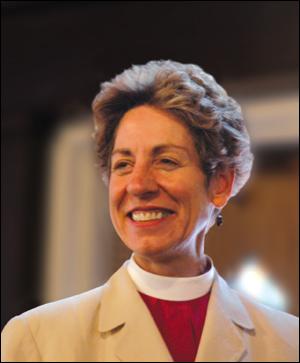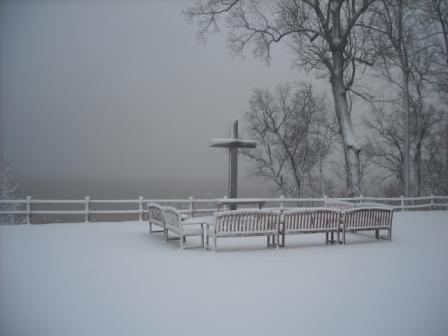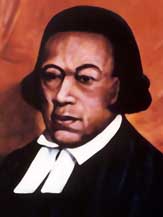 Healing is the primary work of people of faith and the communities of
which they are a part. Christians, as disciples of One who came to save
(rescue, heal, make whole) the world and its inhabitants, seek to heal
their relationships with one another and with all that is.
Healing is the primary work of people of faith and the communities of
which they are a part. Christians, as disciples of One who came to save
(rescue, heal, make whole) the world and its inhabitants, seek to heal
their relationships with one another and with all that is.
Episcopalians
believe this is God's mission and we are its ministers or servants. We
are meant to seek to repair what is breached and broken, to stitch up
what is torn, to heal what is sick, to release what is imprisoned and
oppressed, to comfort the dying, to encourage the ignored, forlorn, and
grieving. Our life finds meaning in responding to the cries around us
and within us, as individuals in community. We follow One who was
himself vilified, tortured, and finally executed for proclaiming the
possibility of reconciled relationships in communities divided by
poverty, violence, and religion.
The
tragic death of Thomas Palermo challenges us all to attend to the work
of healing. We cannot restore what is past, but we can seek
reconciliation and wholeness for all who have been affected - the
Palermo family, Heather Cook, the biking community and others in
Baltimore, the Diocese of Maryland, bystanders and onlookers who have
witnessed any of these traumatic events.
We
begin in prayer - lament and wailing at loss and at human frailty. We
continue in prayer - for succor and comfort, for compassion, for
transformation and healing. Episcopalians worship a God who came among
us in fragile human flesh and suffered pain and death at the hands of
other human beings. We understand his resurrection to mean that death
does not have the final word - and that healing and wholeness transcend
the grave. That healing is never quick or easy, it does not "fix" what
has already happened, but it does begin to let hope grow again.
Our
task is that hard work of healing. It requires vulnerability to the
pain of all involved - victims, transgressors, onlookers, friends and
families and coworkers and emergency responders and community members. A
violent death often divides communities, yet ultimately healing
requires us all to lower our defenses enough to let others minister to
us, to hear another's pain and grief, to share our own devastation, and
indeed to look for the possibility of a new and different future.
Healing also comes through a sense of restored order, which is the role
of processes of accountability.
Healing
requires hope for a redeemed future for the Palermo family as well as
Heather Cook. Many have been changed by this death, yet their lives are
not ended. They can be healed and transformed, even though the path be
long and hard. Our work is to walk that path in solidarity with all
who grieve and mourn. May we pray with the psalmist, "Yea, even though I walk through the valley of the shadow of death, you are with me." May we also be that companioning presence, the image of God in the flesh, for those who walk through that valley.
The Most Rev. Katharine Jefferts Schori
Presiding Bishop and Primate, The Episcopal Church

 The snow blankets Chanco grounds and covers the stunning cross at the
bluff. But while white blankets Chanco's grounds, we are still thinking
of sunshine and summer camp! Home from work and school today? It's a
great day to get on line and get that camp registration done! With
specialty sessions such as Ropes Camp and Mariner's Camp filling fast,
and First Session historically filling to capacity, now is the perfect
time to ensure the Camp Chanco session of your choice! Visit
The snow blankets Chanco grounds and covers the stunning cross at the
bluff. But while white blankets Chanco's grounds, we are still thinking
of sunshine and summer camp! Home from work and school today? It's a
great day to get on line and get that camp registration done! With
specialty sessions such as Ropes Camp and Mariner's Camp filling fast,
and First Session historically filling to capacity, now is the perfect
time to ensure the Camp Chanco session of your choice! Visit 

 The Mid-Atlantic Chapter of the Union of Black Episcopalians will hold
its annual Absalom Jones Day Celebration on Sunday, February 22 at
Tabernacle Christian Church (2500 East Washington Street, Suffolk),
hosted by St. Mark's, Suffolk. The celebration starts at 4 p.m. and will
be followed by light refreshments. The Very Rev. Phoebe Roaf, rector of
St. Philip's, Richmond, will preach.
The Mid-Atlantic Chapter of the Union of Black Episcopalians will hold
its annual Absalom Jones Day Celebration on Sunday, February 22 at
Tabernacle Christian Church (2500 East Washington Street, Suffolk),
hosted by St. Mark's, Suffolk. The celebration starts at 4 p.m. and will
be followed by light refreshments. The Very Rev. Phoebe Roaf, rector of
St. Philip's, Richmond, will preach. The Very Rev. Phoebe Roaf, the rector of St. Philip's Episcopal Church
in Richmond, will preach. Roaf is a graduate of Virginia Theological
Seminary and is the first African-American woman to be ordained as an
Episcopal priest in the Diocese of Louisiana. She is the first woman to
serve as rector of St. Philip's in its 150 year history.
The Very Rev. Phoebe Roaf, the rector of St. Philip's Episcopal Church
in Richmond, will preach. Roaf is a graduate of Virginia Theological
Seminary and is the first African-American woman to be ordained as an
Episcopal priest in the Diocese of Louisiana. She is the first woman to
serve as rector of St. Philip's in its 150 year history. 
 Lent is about to begin. That word in English comes from an Old English
word that means "to lengthen," and it's a reminder of the days getting
longer as we move toward summer out of the dark of winter. But in a
number of other languages, particularly Spanish and French, the word for
"Lent" reflects "forty days," "cuaresma." Forty days of wandering in
the desert, forty days of Jesus out in the desert. It's also about a
journey. And it's a journey that is about enlightenment if we're
willing to think about it that way.
Lent is about to begin. That word in English comes from an Old English
word that means "to lengthen," and it's a reminder of the days getting
longer as we move toward summer out of the dark of winter. But in a
number of other languages, particularly Spanish and French, the word for
"Lent" reflects "forty days," "cuaresma." Forty days of wandering in
the desert, forty days of Jesus out in the desert. It's also about a
journey. And it's a journey that is about enlightenment if we're
willing to think about it that way.